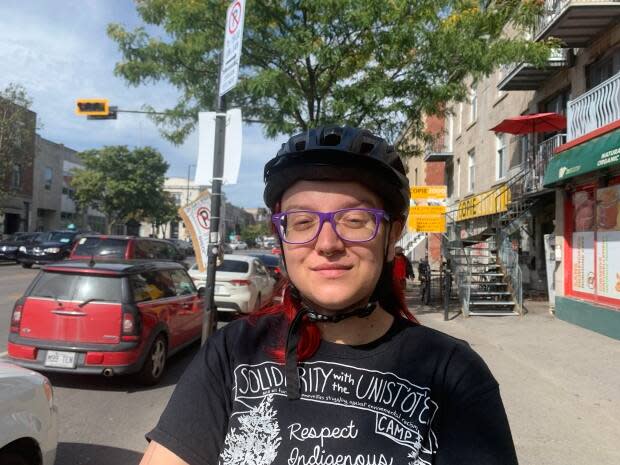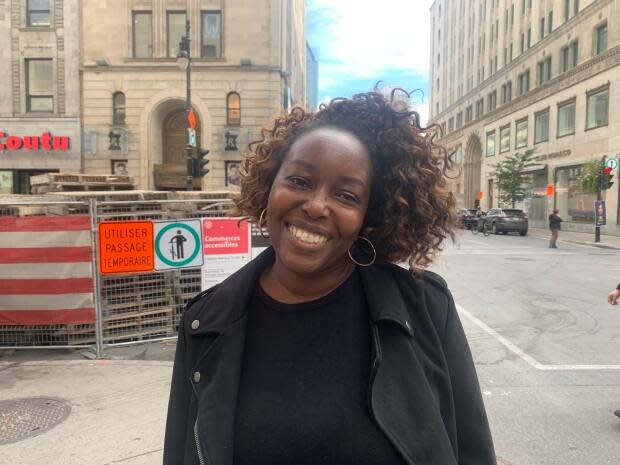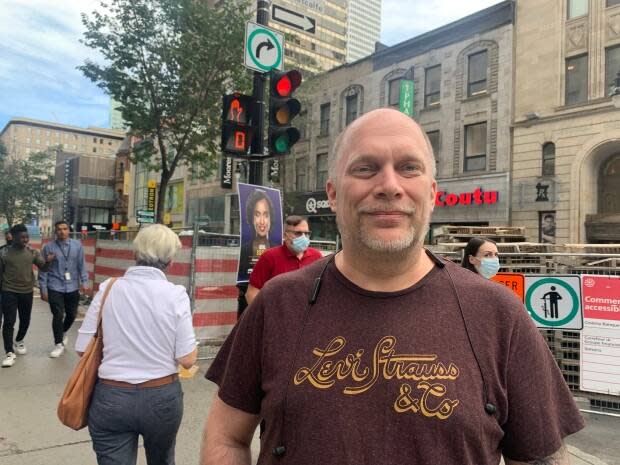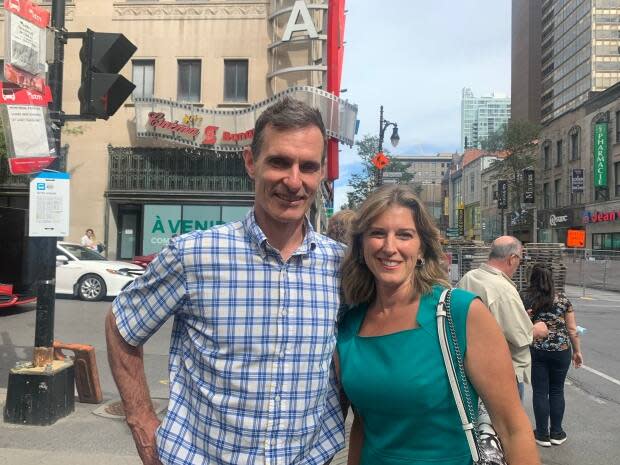Some Montrealers say election was 'waste of time,' others still worry about key issues

Dayna Danger, who is Indigenous, says she went into the election still concerned about First Nation communities like Shoal Lake in Manitoba, which spent almost 24 years under a boil-water advisory that was finally lifted just days ago.
"That's a huge issue for me that still hasn't really been resolved," she said.
She says she's also concerned about water privatization as it "is a resource that is meant for all of us."
Danger said, in the end, she was hoping for any party but the Conservatives, but once the dust settled, it felt like little had changed.
"I feel like it was a bit of a waste of time," said Danger.
She understands why the election was called, she said, "but I also feel like a lot of things are still unanswered."
Voting for the Bloc is 'nonsense'
Solange Hassika says she went into the election particularly concerned about race issues. She wants things to be fair and just.
But in the end, the election was held for nothing, she said, as little changed. It appears people don't really understand politics, she said.

In Quebec, voting for the Bloc Québécois is "nonsense because they will never be in charge of the country," Hassika said.
Hassika says she was particularly concerned about race issues. She wants things to be fair and just.
Hoping government will take on Indigenous relations
Jonathan Ginter, born in the United States, moved to Canada as a boy.
"We are very fortunate to live in a country where the worst thing we have to argue about are a few language laws," said Ginter with a laugh, as he compared the U.S. to Canada.

He was most concerned about climate change and Indigenous relations.
While he's pleased with where the parties stand on environmental issues, he said he's still hoping a Canadian government will take Indigenous relations seriously.
Monday's election didn't go the way he voted and he's still making sense of it, but "it would be hard to do a lot of damage to this country. We are fortunate to be a very sensible people," Ginter said.
Happy with the results
Reem Bamieh says she is happy with the election results.
Prime Minister Justin Trudeau made good decisions during the pandemic and has proven to be focused on helping students, people and the economy.
"I am happy that the Liberals, they won," said Bamieh.

Mike Lee says elections are a good thing as they allow the country to looks back on the way things have gone, and make decisions about the future. It's OK to have shorter terms, he said, and let people decide.
"In the name of democracy, it's worth doing these things," said Lee.
Climate change was the biggest issue on his mind when he voted, he said.

"Big changes need to be made. I am glad each of the parties have platforms in that area," said Lee. "But I think there's a lot more to be done still. Really, we need to get tougher on climate."
Laila Sahyou says she went into the election with concerns about post-pandemic economic recovery.
"I think we need to learn from what didn't work in the past," said Sahyou. It's time to re-think priorities, she said, "and really focus on that."
The economic recovery plans of the various parties were similar and she would like to see them all working together.
"We're all going to be paying for this for many years to come. That has to be part of the thought process," said Sahyou.

